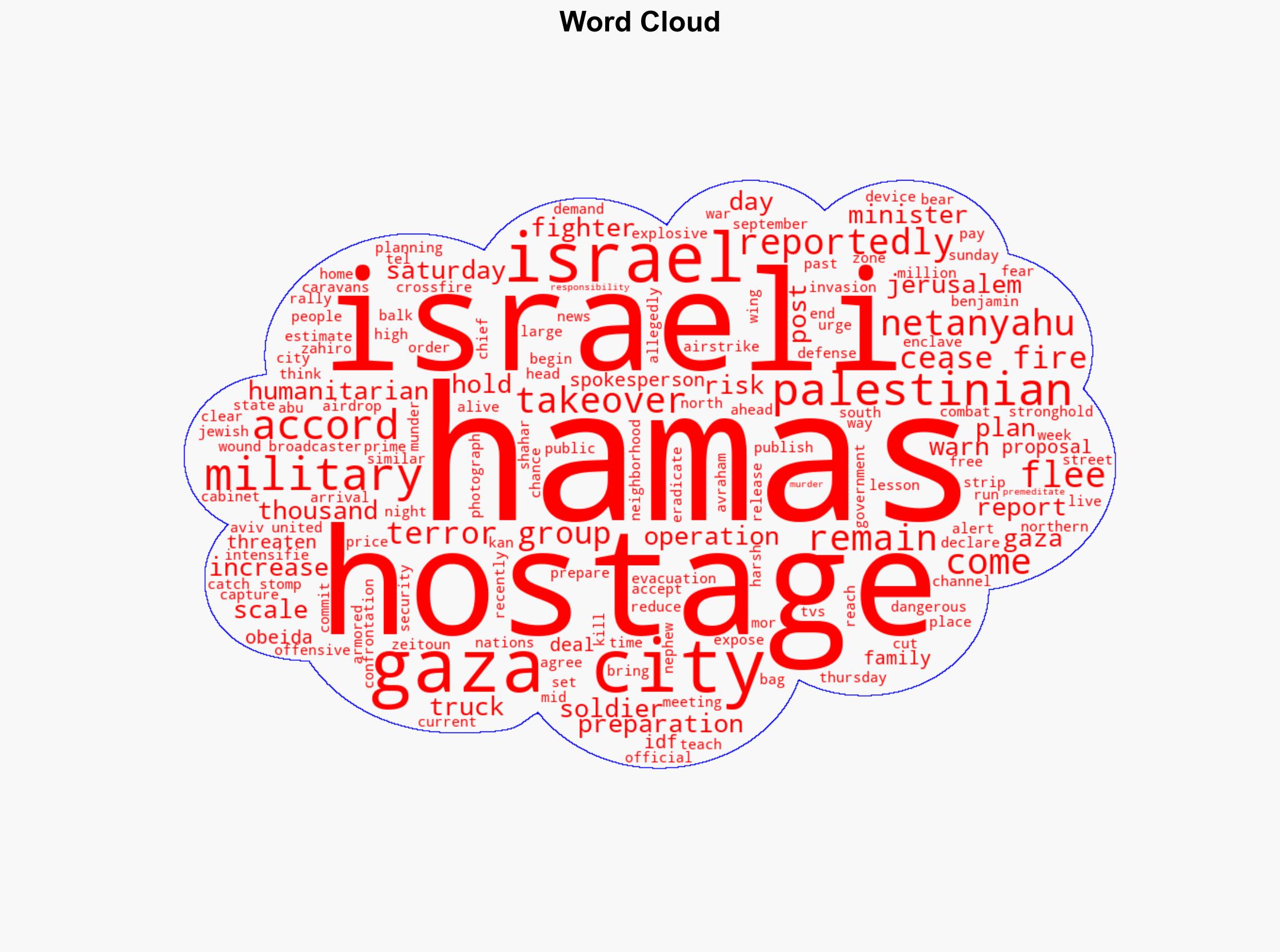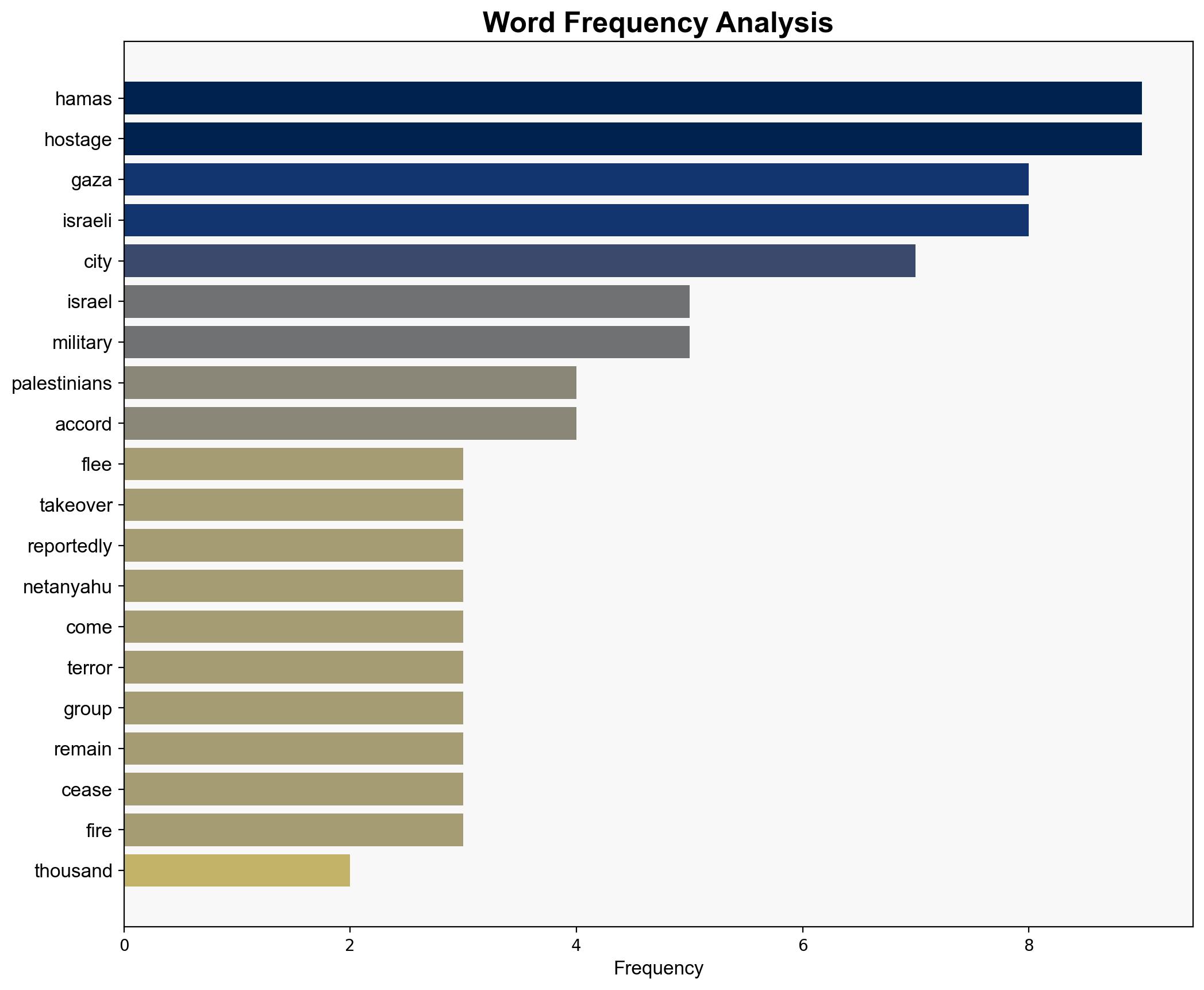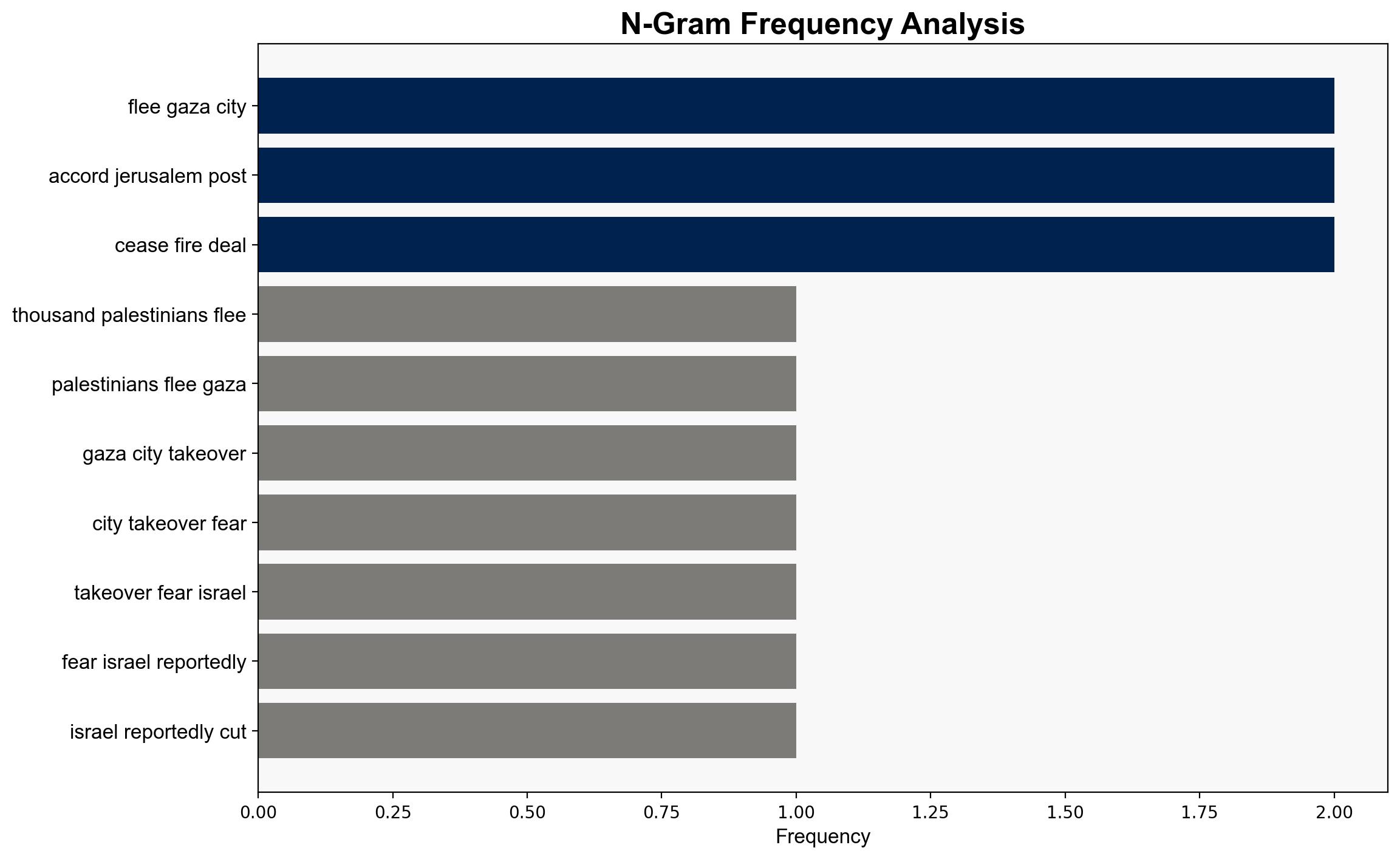Tens of thousands of Palestinians flee amid Gaza City takeover fears as Israel reportedly cuts humanitarian aid – New York Post
Published on: 2025-08-30
Intelligence Report: Tens of thousands of Palestinians flee amid Gaza City takeover fears as Israel reportedly cuts humanitarian aid – New York Post
1. BLUF (Bottom Line Up Front)
The situation in Gaza is escalating, with significant humanitarian and military implications. The most supported hypothesis suggests Israel is preparing for a large-scale military operation in Gaza City, potentially leading to increased regional instability. Confidence level: Moderate. Recommended action: Enhance diplomatic engagement to mitigate humanitarian impacts and prevent further escalation.
2. Competing Hypotheses
Hypothesis 1: Israel is preparing for a comprehensive military operation in Gaza City, aiming to dismantle Hamas infrastructure and secure the release of hostages. This is supported by reports of military buildup, airstrikes, and strategic evacuations.
Hypothesis 2: The current military posturing by Israel is primarily a strategic pressure tactic to force Hamas into negotiations for a ceasefire and hostage release, rather than an imminent full-scale invasion. This is suggested by recent ceasefire proposals and negotiations reported in Israeli media.
Using ACH 2.0, Hypothesis 1 is better supported due to consistent reports of military preparations and evacuations, indicating a readiness for escalation. Hypothesis 2 lacks corroborative evidence of successful negotiation outcomes.
3. Key Assumptions and Red Flags
Assumptions for Hypothesis 1 include the belief that Israel can effectively dismantle Hamas without significant collateral damage. For Hypothesis 2, it assumes Hamas is willing to negotiate under pressure. Red flags include potential misinformation regarding the scale of military operations and the status of hostages. The absence of independent verification of humanitarian aid cuts is a critical blind spot.
4. Implications and Strategic Risks
The potential for a large-scale military operation could lead to significant civilian casualties and displacement, exacerbating humanitarian crises. It may also trigger broader regional conflicts, drawing in neighboring states and non-state actors. Economic impacts include disruptions to regional trade and potential increases in global oil prices due to instability. Cyber threats could escalate as both sides may engage in cyber warfare to disrupt communications and infrastructure.
5. Recommendations and Outlook
- Engage in diplomatic efforts with regional and international partners to de-escalate tensions and facilitate humanitarian aid delivery.
- Prepare for potential refugee influxes and coordinate with international organizations for humanitarian assistance.
- Monitor cyber threats and enhance cybersecurity measures to protect critical infrastructure.
- Scenario Projections:
- Best Case: Successful negotiations lead to a ceasefire and hostage release, reducing immediate tensions.
- Worst Case: Full-scale invasion leads to widespread conflict and humanitarian disaster.
- Most Likely: Continued military skirmishes with intermittent negotiations, prolonging instability.
6. Key Individuals and Entities
Benjamin Netanyahu, Abu Obeida, Zahiro Shahar, Avraham Munder
7. Thematic Tags
national security threats, counter-terrorism, regional focus





